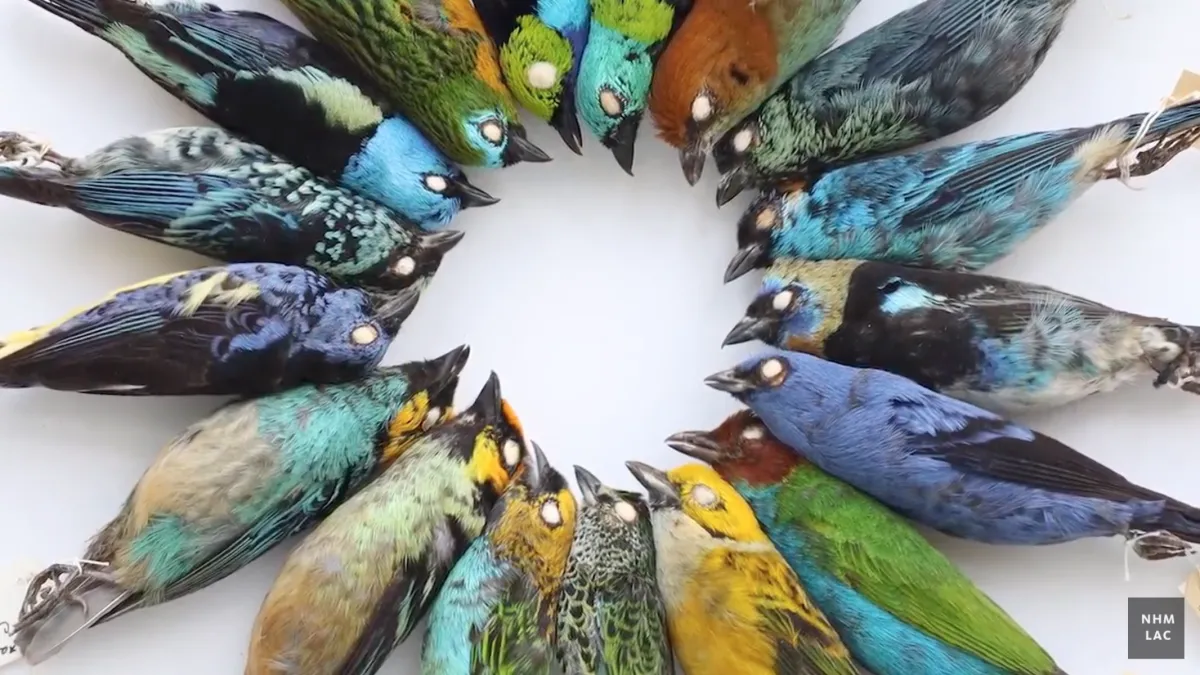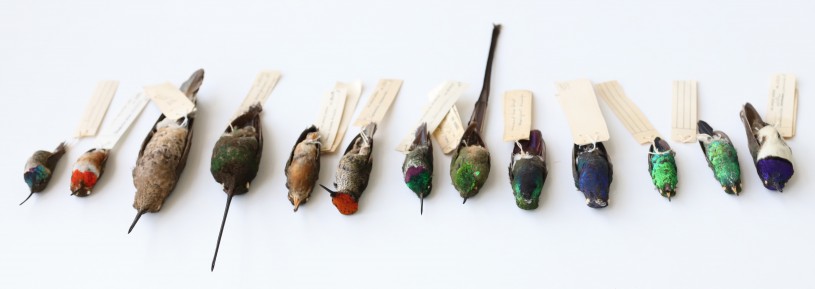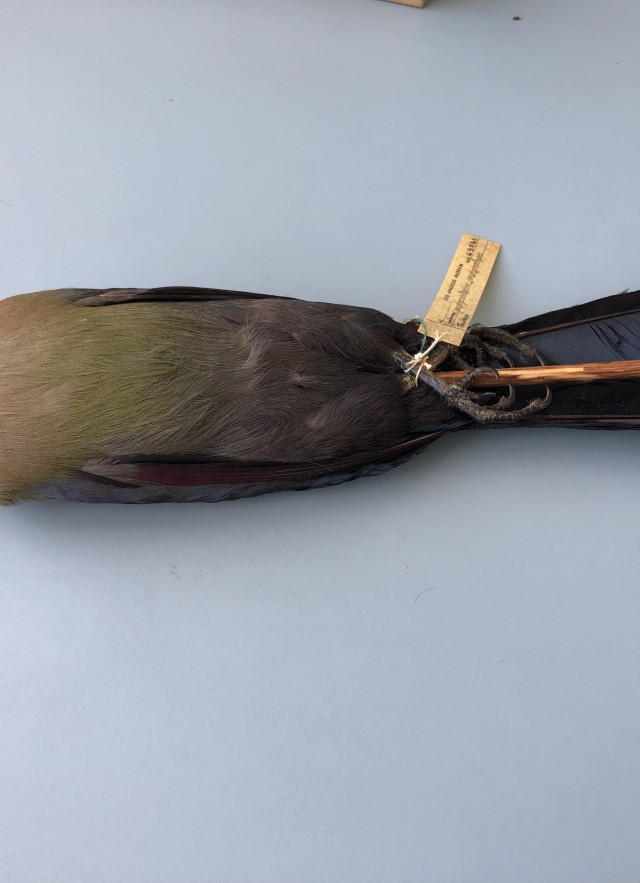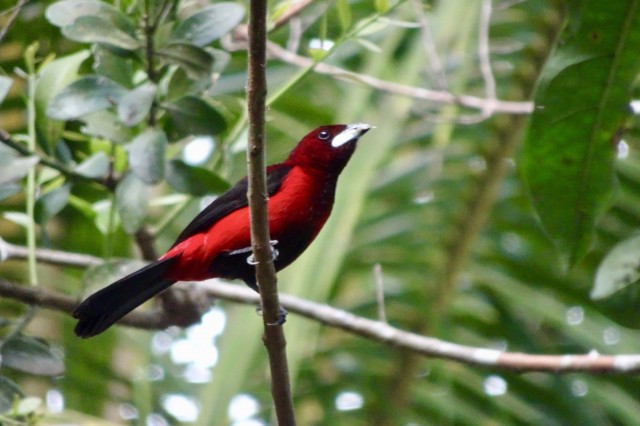The How and Why of Colorful Feathers
Equal parts ornithologist and evolutionary biologist, Assistant Ornithology Curator Dr. Allison Shultz has been investigating two questions throughout her research career: how are birds colorful, and why are birds colorful.

Equal parts ornithologist and evolutionary biologist, NHM's Assistant Ornithology Curator Dr. Allison Shultz has been investigating two questions throughout her research career: how are birds colorful, and why are birds colorful. The birds that helped Dr. Shultz’s fascination take flight were turacos, the only bird with a truly green pigment. Pigments produce color by absorbing specific wavelengths and are one of the two ways birds get to be so vividly colorful, the other being the physical structure of the feather. For Dr. Shultz, most birds that appear green to you and me are actually a combination of blue feather structure and yellow pigment. Not so with the verdant turaco. "It’s the first bird pigment to be described, but the one we know the least about."
While they might have sounded like rudimentary questions, Shultz’s research is clearly anything but, covering disciplines like physics and biochemistry. According to Shultz, the "how’" of bird color is a mechanistic question looking at genes and feather microstructure such as barbs and barbules, while the "why" is a signaling question, relating to bird communication.

If it’s not clear by now, this is just a glimpse into the fascinating and elegant world of bird color. "Birds don’t see the world the same way you do. Birds actually see another dimension of color compared to us." Thanks to specialized cone photoreceptors, birds can see ultraviolet light. Which means that there’s so much more going on with bird color than meets the human eye. Through Shultz’s research and curation of the bird collection, we’re seeing much more, too, and luckily enough, Shultz says the NHM has a great collection of turacos.
Watch Dr. Shultz, in her home, talk more about this phenomenon above.
And for even more about feathers, listen to this Ologies podcast!

